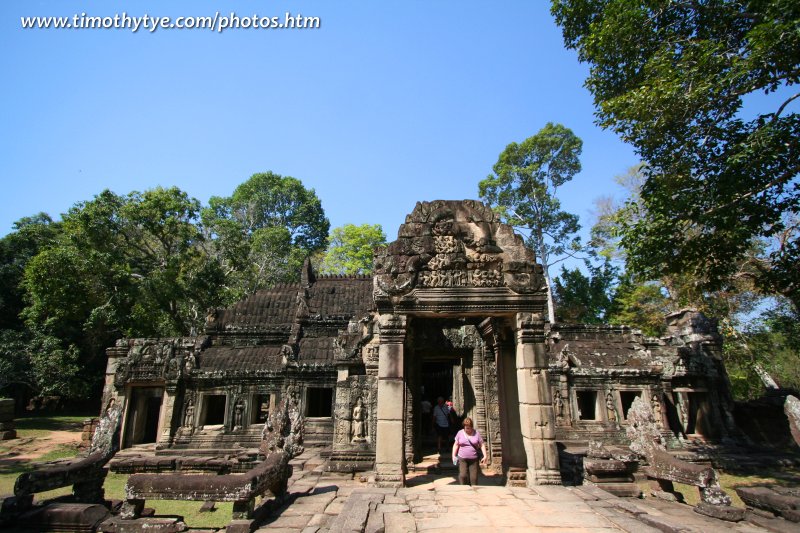 Banteay Kdei (24 February, 2006)
Banteay Kdei (24 February, 2006)
Banteay Kdei ប្រាសាទបន្ទាយក្តី (GPS: 13.42977, 103.89914) is an ancient Angkor ruin located on the western shore of the man-made reservoir, Srah Srang. Its name means "citadel of the cells". Banteay Kdei was built in the middle of the 12th century to the beginning of the 13th century, as a Buddhist monastic complex by the most prolific Angkorian builder, King Jayavarman VII, who reigned from AD 1181 to 1220.
By the time Banteay Kdei was built, much of the good quality stones have been exhausted. Hence it was built mostly using low quality sandstone. Due to the poor quality of the material used, much of Banteay Kdei is today crumbling. And to make matters worse, the craftsmanship was also poor. I have to say that Jayavarman VII was big on quantity but not on quality.
Banteay Kdei was built to be symmetrical, with the north half a mirror image of the south half. A single causeway cuts right through the complex from east to west. It takes you straight across a series of chambers. In some places you may have to negotiate around big stones that have fallen down.
In the first of many chambers, there is a Buddha statue wearing a safron robe. I suppose this is a new addition to the complex. I can see that locals are still making offerings to this idol.
Banteay Kdei on Google Maps Street View
With Google Maps Street View, you can now do a virtual tour of Banteay Kdei from the comfort of your desk. Just follow this 360° View, and click to progress in any direction of your choice.Explore Banteay Kdei without leaving your desk.
Banteay Kdei is  in the centre of the Map of Angkor
in the centre of the Map of Angkor
Banteay Kdei is similar in style to Ta Prohm just a stone's throw away down the road. It is slightly smaller, less ornate (at least, judging from what remains to be seen) and less overtaken by nature. (Here, I have to mention that Ta Prohm appears overtaken by nature because the restorers deliberately kept it that way.) Typically visitors begin their tour of Banteay Kdei at the East Gopura near Srah Srang, and walk from east to west, across the compound, through the ruins, and out again, through to the gopura on the other side. That was how I did as well, on my visits to Banteay Kdei.
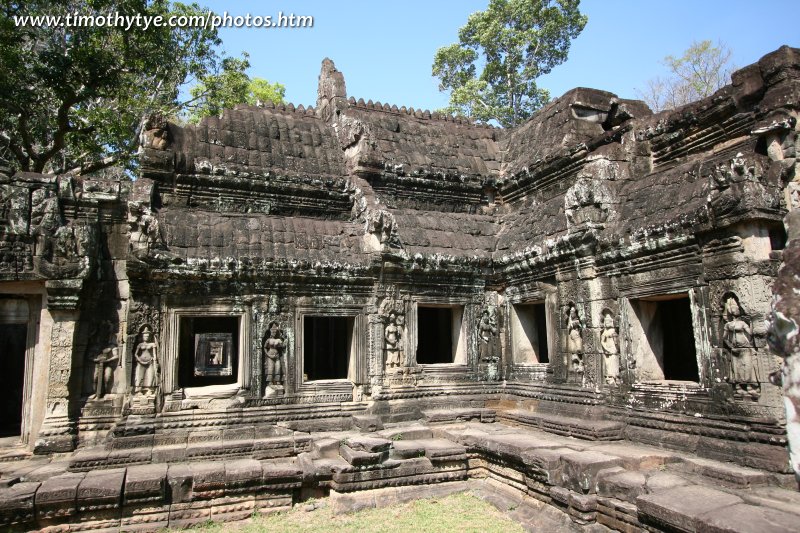 View of the exterior of Banteay Kdei (24 February, 2006)
View of the exterior of Banteay Kdei (24 February, 2006)
How to reach Banteay Kdei
Most tuk tuk driver will be familiar with Banteay Kdei, but if you're travelling independently from Siem Reap, the most straightforward way to reach Banteay Kdei is to take the road from Siem Reap to Angkor Wat. When you see the moat of Angkor Wat, turn right (not left, that takes you to Angkor Thom). After a short distance, you will pass Prasat Kravan on your right. After another distance you will see the man-made reservoir of Srah Srang on your right and Banteay Kdei on your left.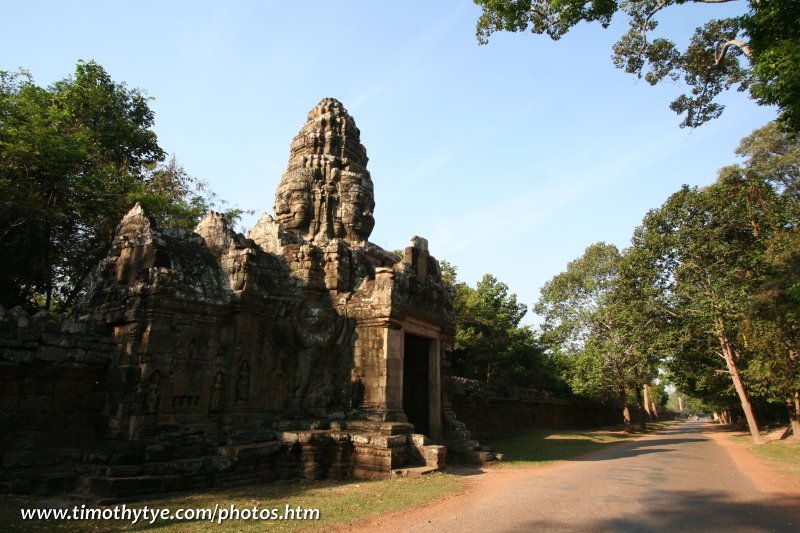 View of the northern gopura and outer wall of Banteay Kdei (25 February, 2006)
View of the northern gopura and outer wall of Banteay Kdei (25 February, 2006)
Journey through Banteay Kdei
Through this series of shots, let me take you through the ruins of Banteay Kdei. We start from the East Gopura, across the road from Srah Srang, and make our way through the complex heading west.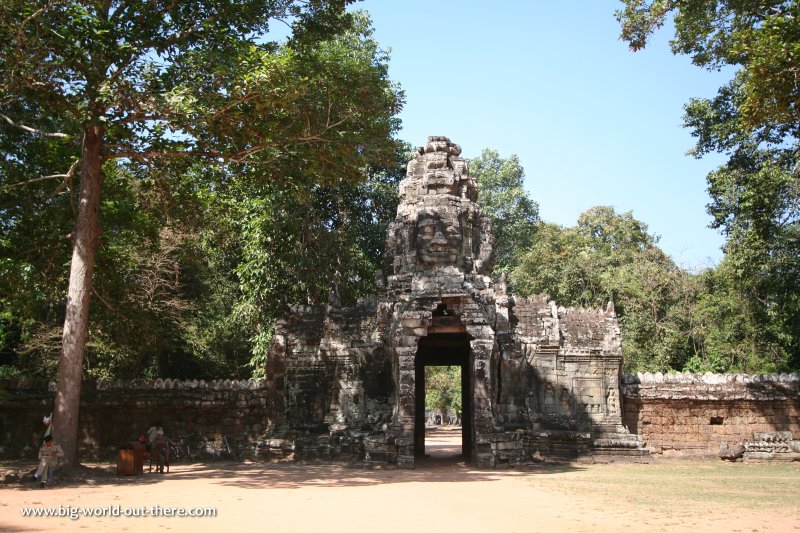 The East Gopura, or eastern gateway, of Banteay Kdei (24 February, 2006)
The East Gopura, or eastern gateway, of Banteay Kdei (24 February, 2006)
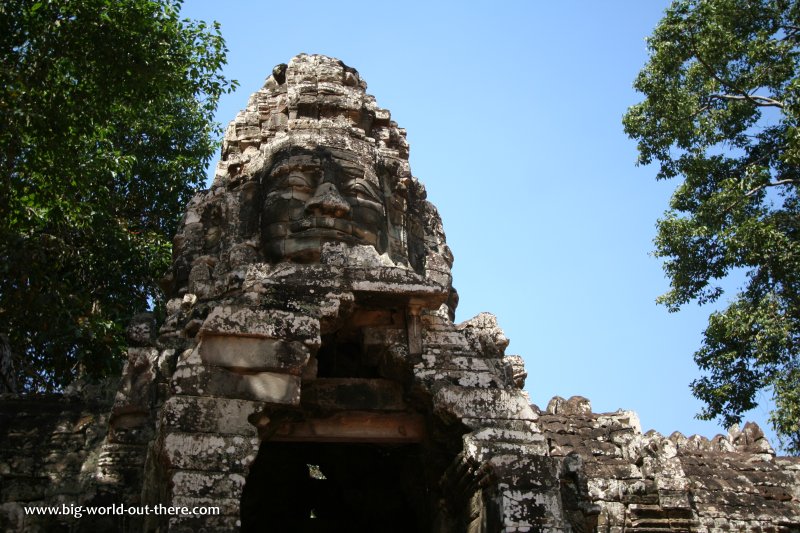 The bust of King Jayavarman VII adorns the gopura of Banteay Kdei (24 February, 2006)
The bust of King Jayavarman VII adorns the gopura of Banteay Kdei (24 February, 2006)
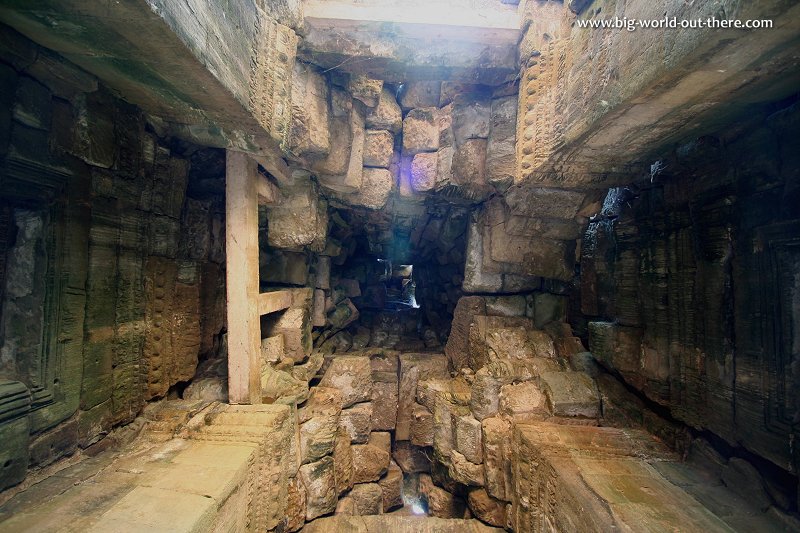 This is how it looks like, looking up the East Gopura of Banteay Kdei (24 February, 2006)
This is how it looks like, looking up the East Gopura of Banteay Kdei (24 February, 2006)
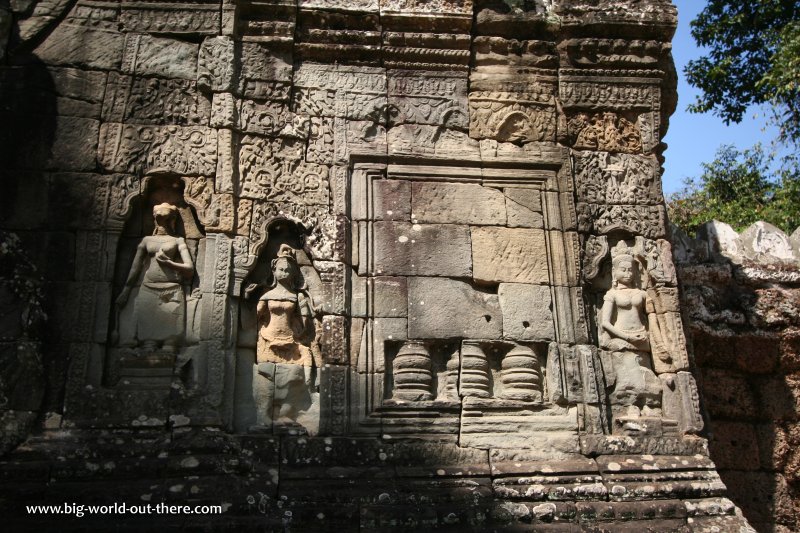 Reliefs of apsaras, or dancing nymphs, adorn the wall of the East Gopura of Banteay Kdei (24 February, 2006)
Reliefs of apsaras, or dancing nymphs, adorn the wall of the East Gopura of Banteay Kdei (24 February, 2006)
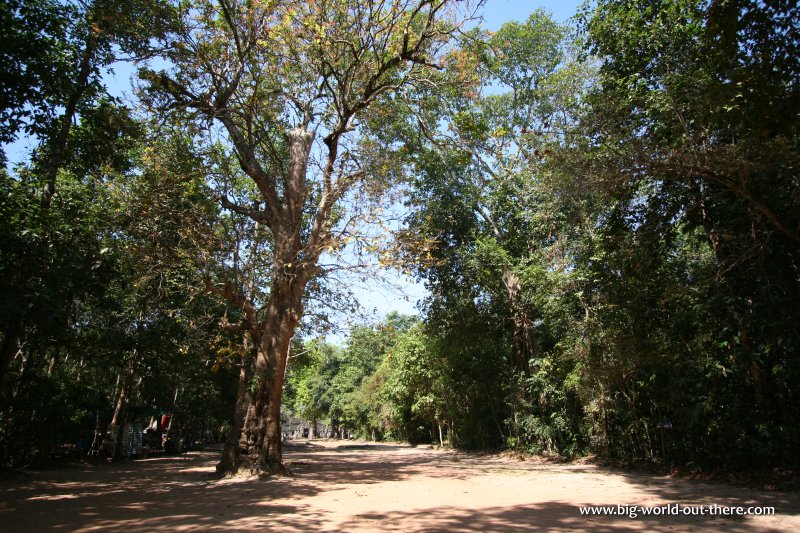 There is still a distance separating the East Gopura from the main monastery complex of Banteay Kdei (24 February, 2006)
There is still a distance separating the East Gopura from the main monastery complex of Banteay Kdei (24 February, 2006)
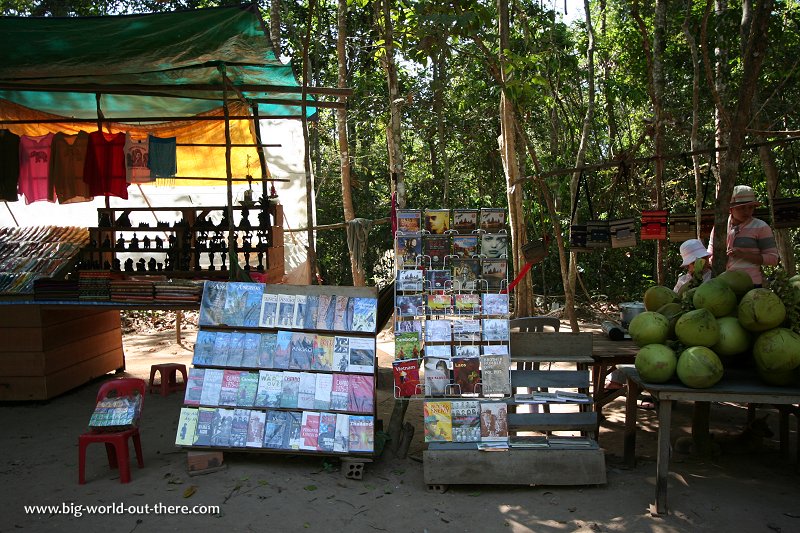 Along the way between the East Gopura and the monastery, we say stalls selling souvenirs and travel guides to Angkor (24 February, 2006)
Along the way between the East Gopura and the monastery, we say stalls selling souvenirs and travel guides to Angkor (24 February, 2006)
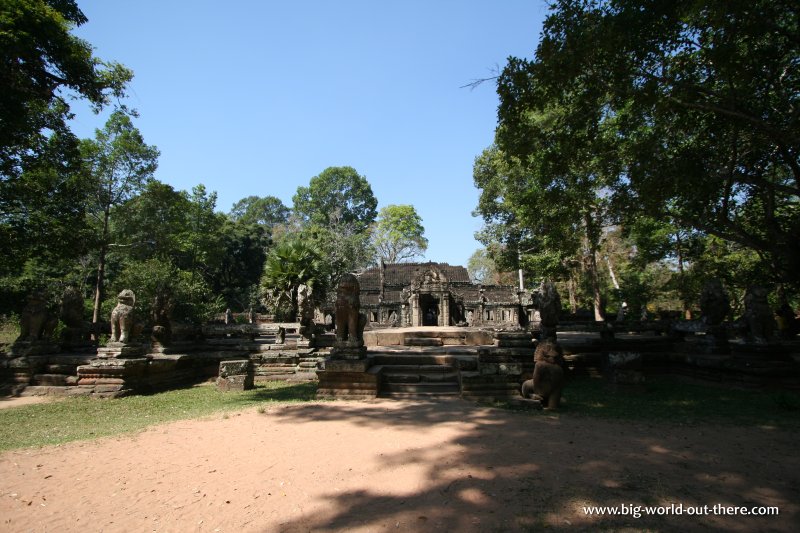 After walking for a few minutes, we finally arrived at the entrance to Banteay Kdei (24 February, 2006)
After walking for a few minutes, we finally arrived at the entrance to Banteay Kdei (24 February, 2006)
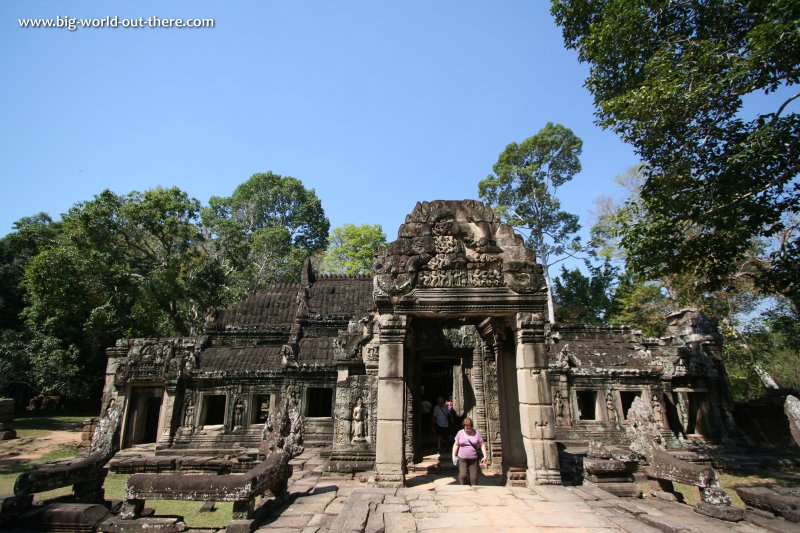 This is the first of many archways as we approach Banteay Kdei (24 February, 2006)
This is the first of many archways as we approach Banteay Kdei (24 February, 2006)
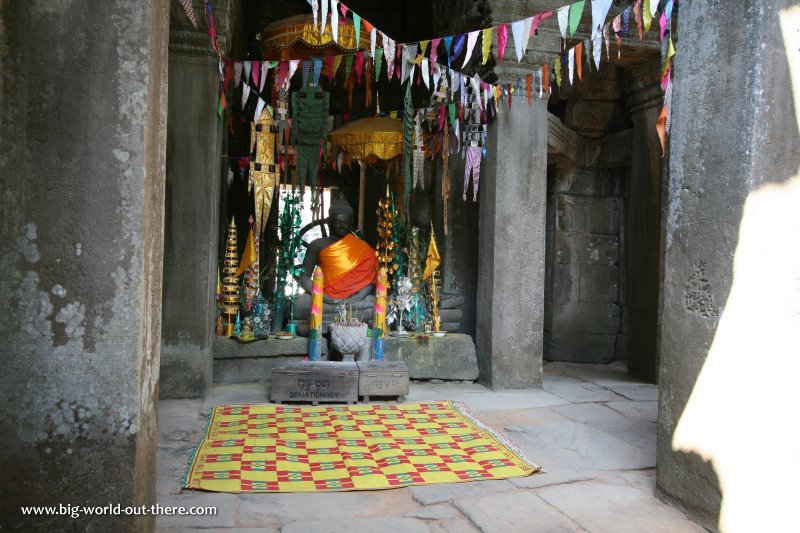 A Buddha statue in one of the first chambers of Banteay Kdei (24 February, 2006)
A Buddha statue in one of the first chambers of Banteay Kdei (24 February, 2006)
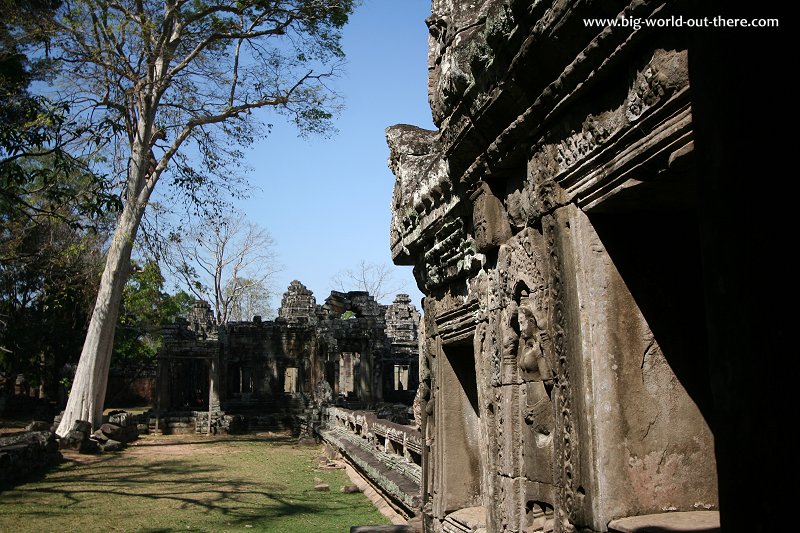 This is how it looks like peering out of one of the chambers at Banteay Kdei. You will see that the stone complex seems to go on and on. (24 February, 2006)
This is how it looks like peering out of one of the chambers at Banteay Kdei. You will see that the stone complex seems to go on and on. (24 February, 2006)
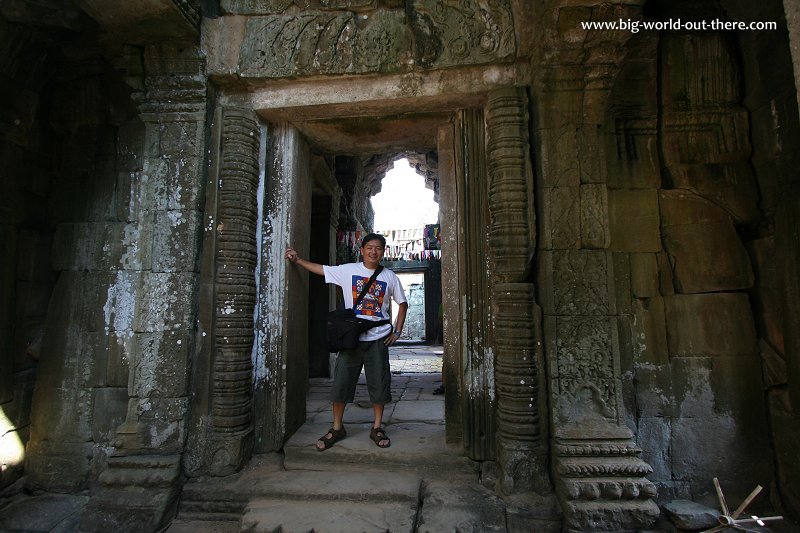 Here I am within the ruins of Banteay Kdei (24 February, 2006)
Here I am within the ruins of Banteay Kdei (24 February, 2006)
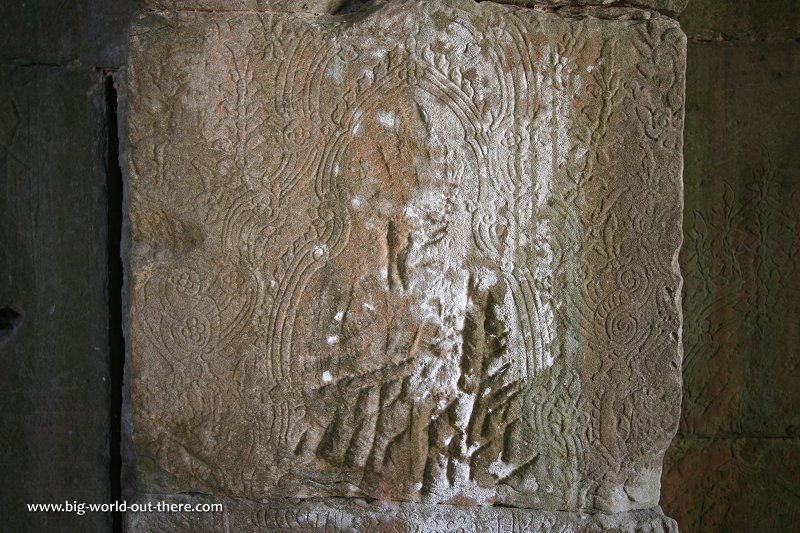 In places, we saw the original carvings damaged by later graffiti. (24 February, 2006)
In places, we saw the original carvings damaged by later graffiti. (24 February, 2006)
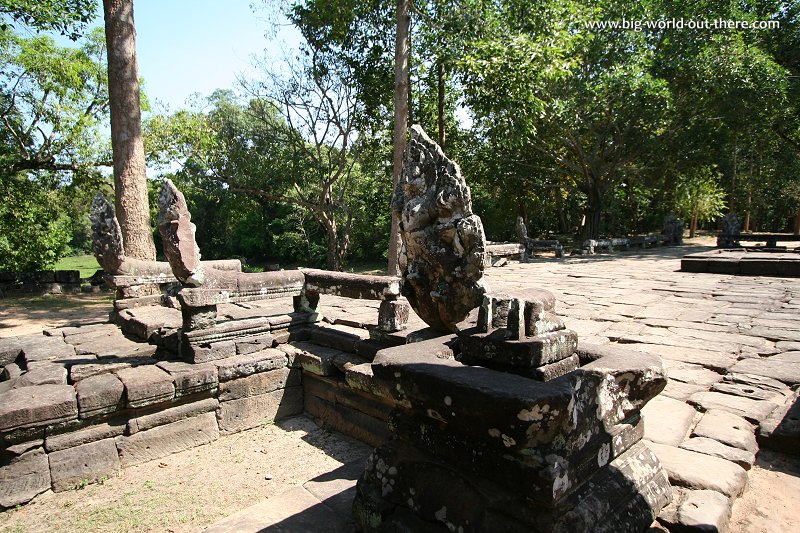 The different sections of Banteay Kdei are separated by stone platforms with Naga (serpent) balustrades. (24 February, 2006)
The different sections of Banteay Kdei are separated by stone platforms with Naga (serpent) balustrades. (24 February, 2006)
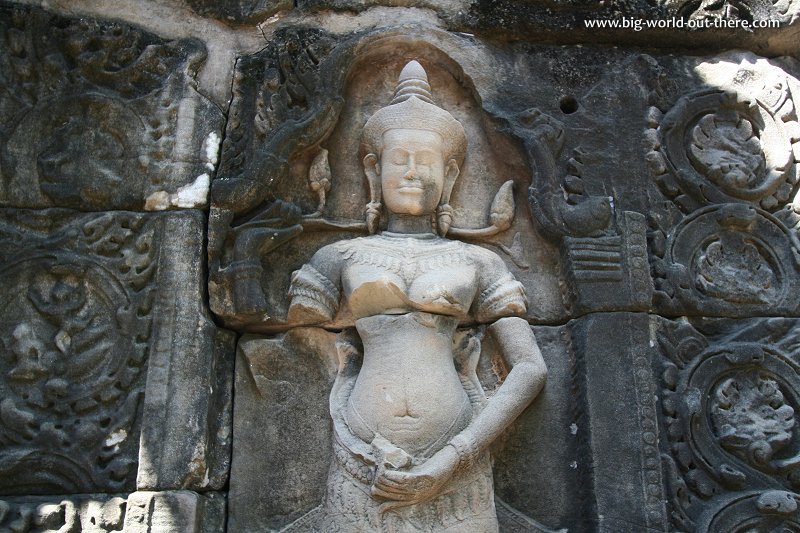 A carving of an apsara at Banteay Kdei, with the breast chipped away (24 February, 2006)
A carving of an apsara at Banteay Kdei, with the breast chipped away (24 February, 2006)
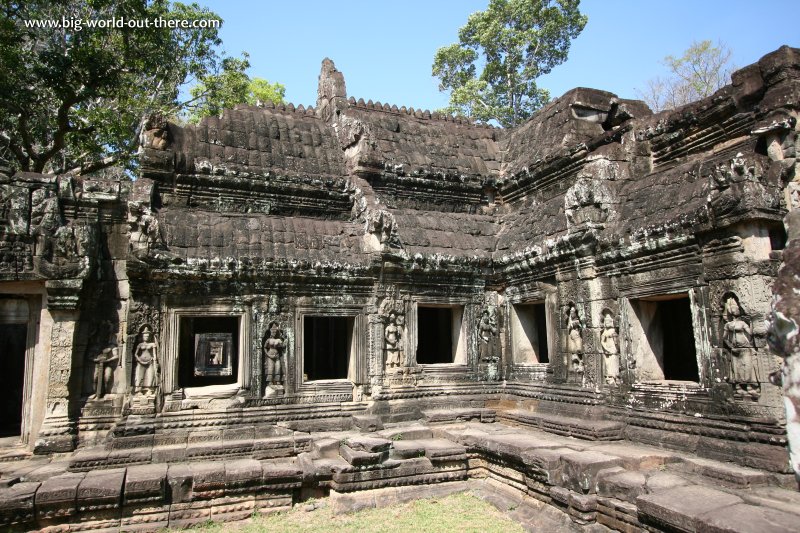 This is how the stone chambers of Banteay Kdei look like from the outside. (24 February, 2006)
This is how the stone chambers of Banteay Kdei look like from the outside. (24 February, 2006)
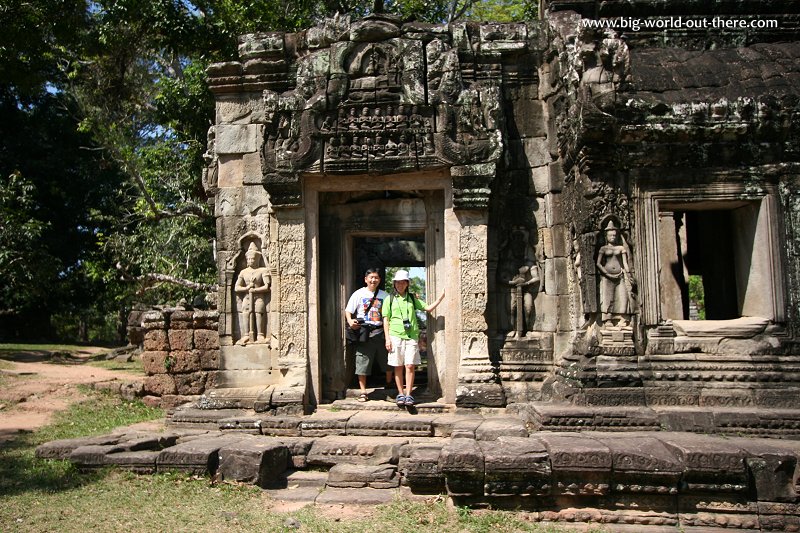 My wife Chooi Yoke and I at Banteay Kdei (24 February, 2006)
My wife Chooi Yoke and I at Banteay Kdei (24 February, 2006)
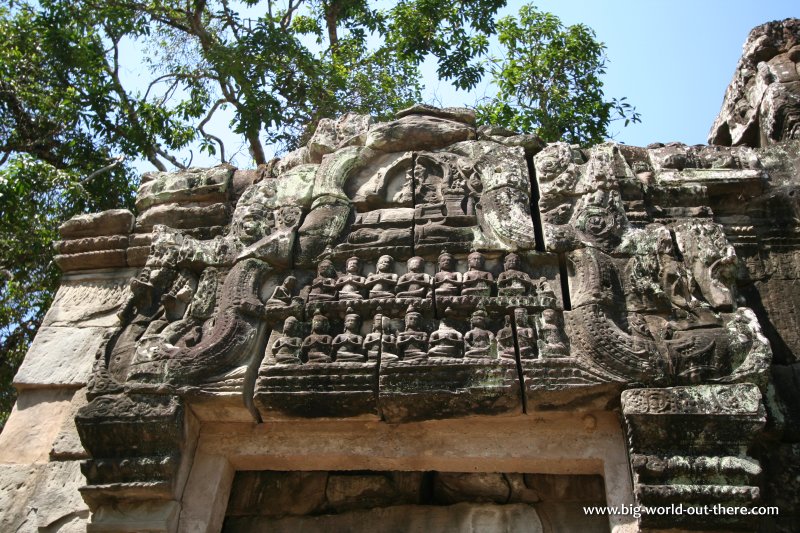 A lintel at Banteay Kdei showing two rows of, I suppose, devotees. (24 February, 2006)
A lintel at Banteay Kdei showing two rows of, I suppose, devotees. (24 February, 2006)
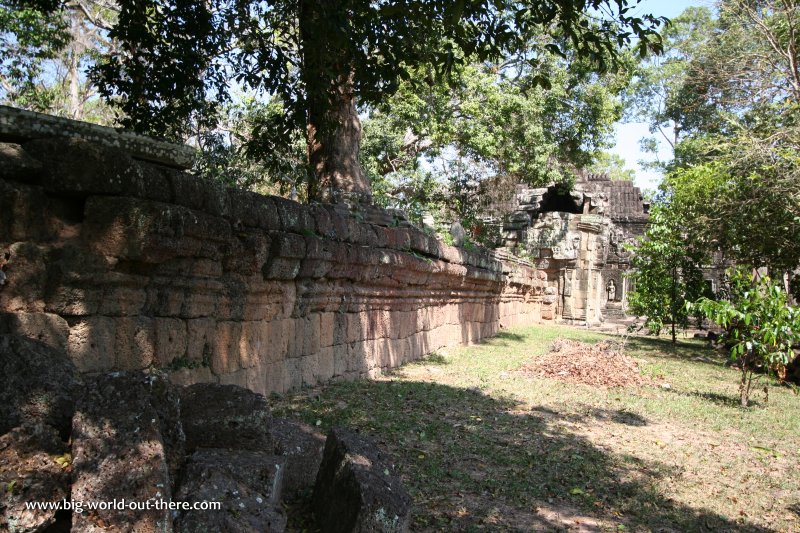 An inner wall surrounds the Banteay Kdei complex (24 February, 2006)
An inner wall surrounds the Banteay Kdei complex (24 February, 2006)
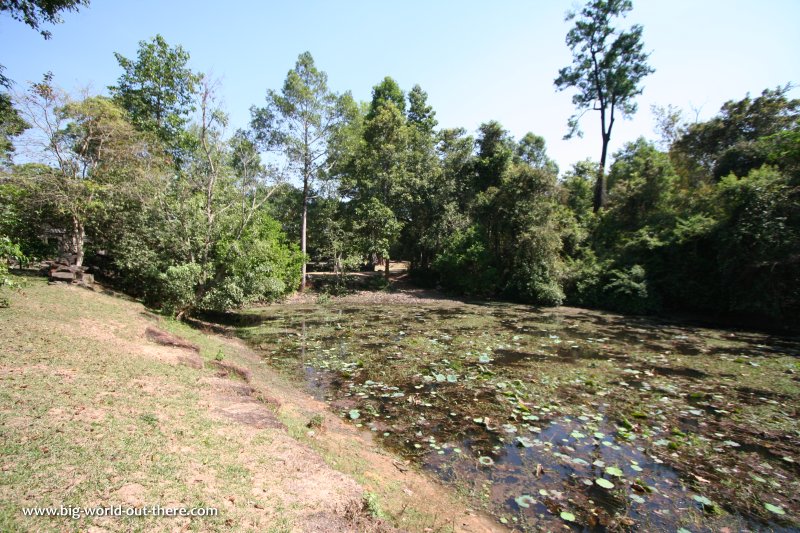 Remains of a moat that used to encircle the Banteay Kdei complex (24 February, 2006)
Remains of a moat that used to encircle the Banteay Kdei complex (24 February, 2006)
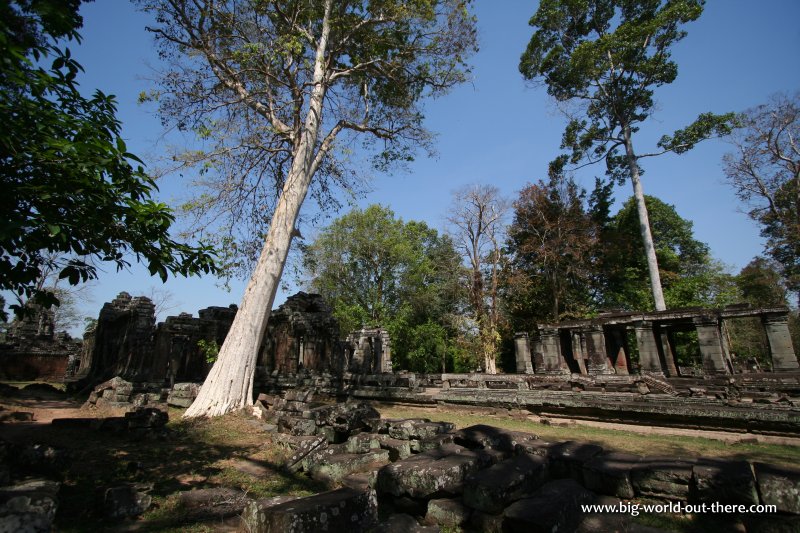 Tall forest trees now grow among the rocks of Banteay Kdei (24 February, 2006)
Tall forest trees now grow among the rocks of Banteay Kdei (24 February, 2006)
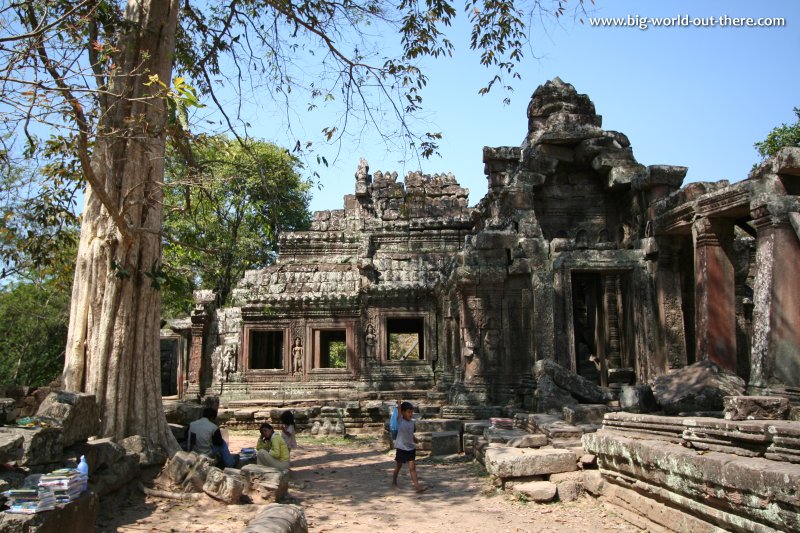 Everywhere we went at Banteay Kdei, we would come across locals hawking various souvenirs, guide books and drinks. (24 February, 2006)
Everywhere we went at Banteay Kdei, we would come across locals hawking various souvenirs, guide books and drinks. (24 February, 2006)
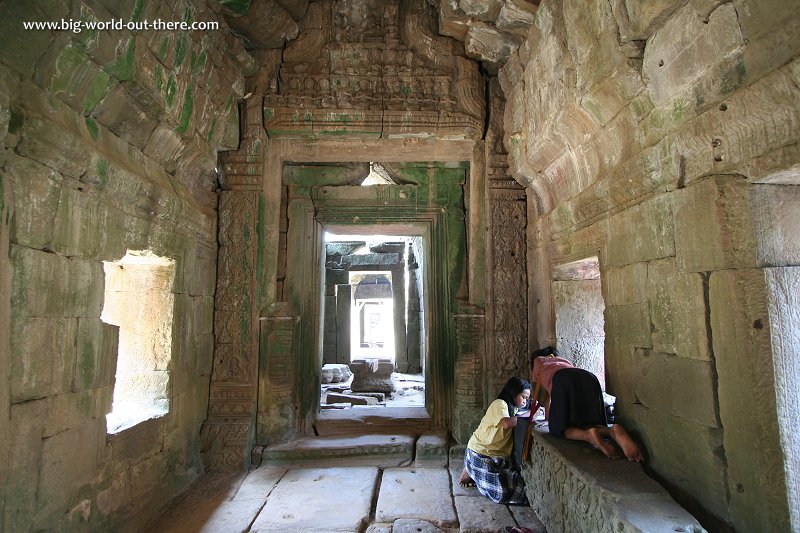 Deep within the Banteay Kdei, we came across these two children absorbed in doing their homework. (24 February, 2006)
Deep within the Banteay Kdei, we came across these two children absorbed in doing their homework. (24 February, 2006)
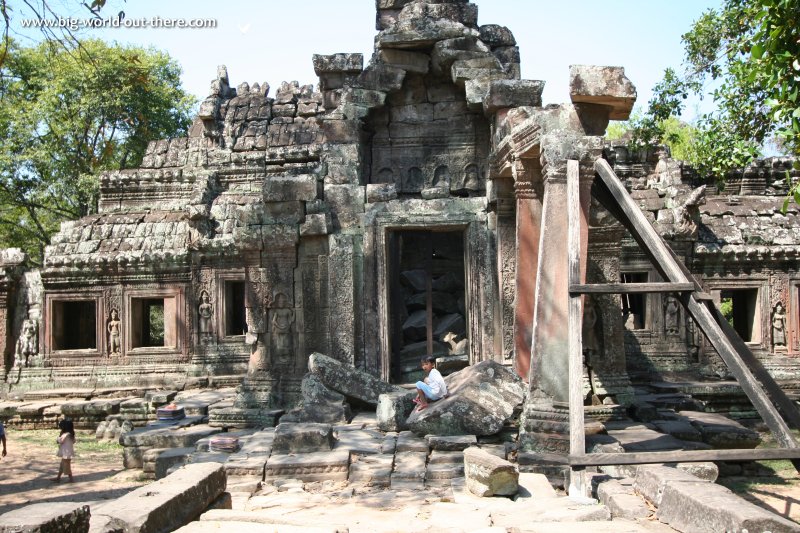 After seeing so many heaps of stones, it would be understandable that we began to experience "stone fatigue". (24 February, 2006)
After seeing so many heaps of stones, it would be understandable that we began to experience "stone fatigue". (24 February, 2006)
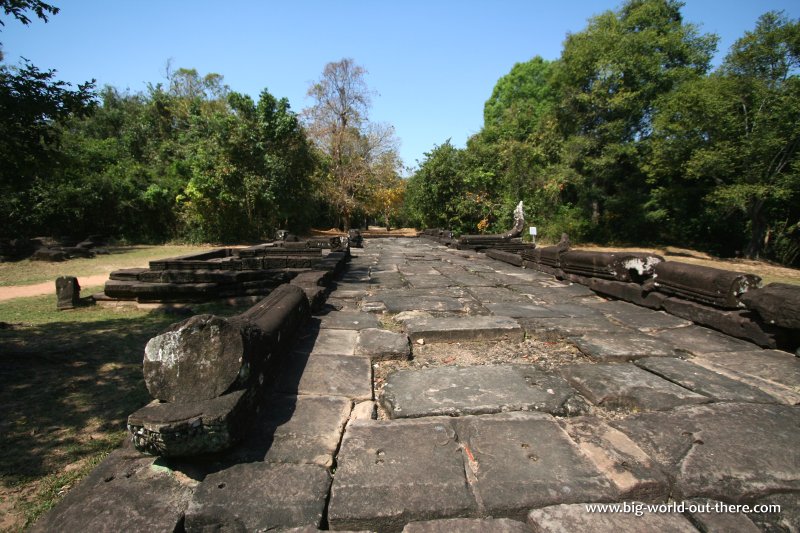 And are quite thankful that we have finally emerged from the western end of Banteay Kdei, which has another stone platform or causeway. (24 February, 2006)
And are quite thankful that we have finally emerged from the western end of Banteay Kdei, which has another stone platform or causeway. (24 February, 2006)
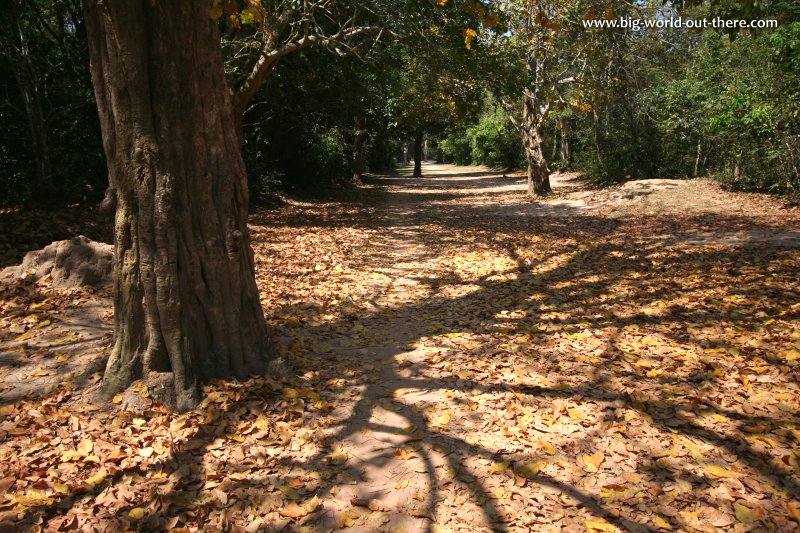 Another forest path separates the Banteay Kdei complex from its western gate. (24 February, 2006)
Another forest path separates the Banteay Kdei complex from its western gate. (24 February, 2006)
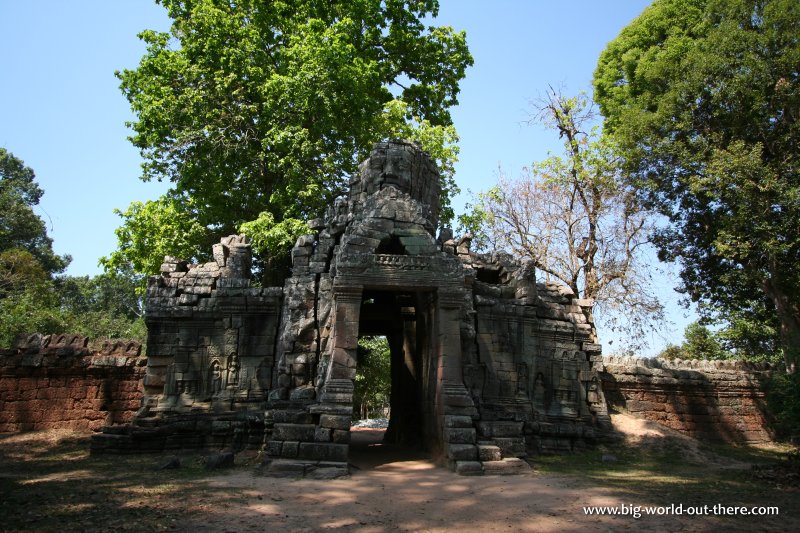 After a few minutes of walking, we finally arrived at the West Gopura of Banteay Kdei. Our tuk-tuk was waiting for us on the other side of this gate. (24 February, 2006)
After a few minutes of walking, we finally arrived at the West Gopura of Banteay Kdei. Our tuk-tuk was waiting for us on the other side of this gate. (24 February, 2006)
 Latest updates on Penang Travel Tips
Latest updates on Penang Travel Tips
 Map of Roads in Penang
Map of Roads in Penang
Looking for information on Penang? Use this Map of Roads in Penang to zoom in on information about Penang, brought to you road by road.
Copyright © 2003-2025 Timothy Tye. All Rights Reserved.

 Go Back
Go Back